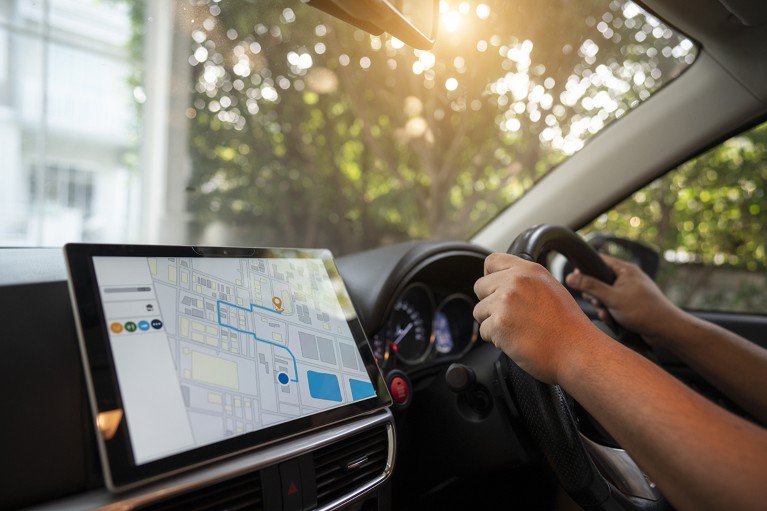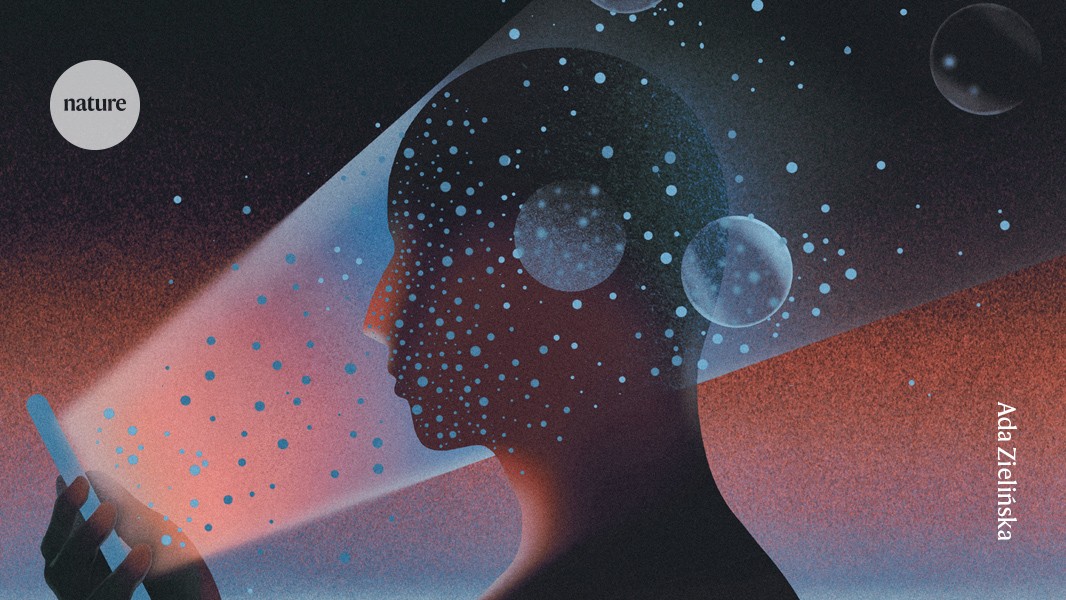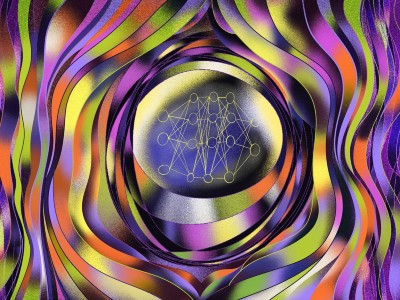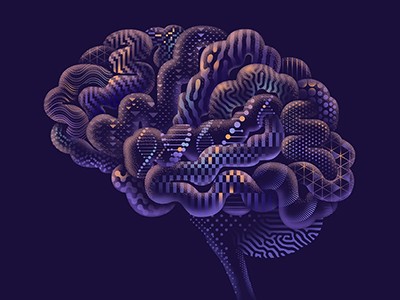Adrian Ward had been driving confidently around Austin, Texas, for nine years — until last November, when he started getting lost. Ward’s phone had been acting up, and Apple maps had stopped working. Suddenly, Ward couldn’t even find his way to the home of a good friend, making him realize how much he’d relied on the technology in the past. “I just instinctively put on the map and do what it says,” he says.
Ward’s experience echoes a common complaint: that the Internet is undermining our memory. This fear has shown up in several surveys over the past few years, and even led one software firm to coin the term ‘digital amnesia’ for the experience of forgetting information because you know a digital device has stored it instead. Last year, Oxford University Press announced that its word of the year was ‘brain rot’ — the deterioration of someone’s mental state caused by consuming trivial online content.
“What you’ll see out there is all kinds of dire predictions about digital amnesia, and ‘we’re gonna lose our memory because we don’t use it anymore’,” says Daniel Schacter, who studies memory at Harvard University in Cambridge, Massachusetts.
AI hallucinations can’t be stopped — but these techniques can limit their damage
In fact, various studies paint a more complicated picture. Some do suggest that the Internet and digital technologies impair or otherwise alter performance on specific learning and memory tasks: people who use GPS devices to navigate seem worse at recalling routes, for instance. Ward, who is a psychologist at the University of Texas at Austin, has found that Googling information gives people an inflated sense of their own knowledge1. But there is no convincing evidence that the technology is having a broader detrimental effect on memory, researchers say. Claims, such as ‘Google is making us stupid’, are “overstatements”, says Elizabeth Marsh, a memory researcher at Duke University in Durham, North Carolina.
The revolution in artificial intelligence (AI) is raising a host of questions. Large language models (LLMs) that power tools such as ChatGPT are rapidly being incorporated into search engines and other software, which means they are becoming part of everyday experiences for most people. And they could affect learning and memory in more profound ways than conventional Internet searching. “This whole ChatGPT thing is another level of technology that’s really different from just typing into a Google browser, ‘What’s the capital of Madagascar?’” says Marsh.
Researchers have suggested, for example, that chatbots and other AI tools could make people cognitively lazy and even seed their minds with realistic false memories. Already, generative AI is being used to create ‘deadbots’ — digital avatars of dead people, who can say things that the living person never said. “It’s kind of reassembling a past that we never experienced,” says Andrew Hoskins, who studies AI and memory at the University of Edinburgh, UK.
The Google effect
People have been using technology to aid their memories for centuries — from the printing press to photographs and video cameras. But the idea that the Internet is eroding human memory gained ground after a 2011 study2 by psychologist Betsy Sparrow, who was then at Columbia University in New York City, and others. In the first of a series of experiments, they reported that people presented with difficult questions instinctively thought about the Internet and computers, as if they were itching to search for answers.
In other tests, participants seemed to be worse at remembering trivia statements they’d typed into a computer if they’d been told that the machine would save, rather than erase, their notes. They often remembered the folder they’d saved facts in better than the information itself. The study popularized the idea of a ‘Google effect’ — that people are using the Internet as an external memory bank and therefore weakening their own.
But some researchers later questioned the reliability of these results. A study3 in 2018 failed to replicate the first experiment in Sparrow’s 2011 study — differences that Sparrow argued could be explained4. Then, a second attempt to replicate the same experiment also failed to mirror the original results5. “‘Google effects’ are plausible and have garnered significant attention,” says Guido Hesselmann, a psychologist at the Berlin Psychological University who did the second replication attempt. But he adds that “a higher standard should be applied when researching these ideas”.

Studies have shown that people remember a route less well after using GPS to navigate it.Credit: Witthaya Prasongsin/Getty
Ward was a PhD student with one of Sparrow’s co-authors, Daniel Wegner at Harvard University, and remains convinced by the 2011 study. The results fit with a widely accepted concept6 called transactive memory that Wegner proposed in the 1980s. This says that people lessen the burden of remembering information by sharing it with others — a spouse or colleague, for example.
When the other party in the transaction is the Internet, however, we’re potentially relieved of having to know much at all. “Why put it in my head, when I have a smartphone in my pocket and sometimes searching Google is faster than searching your own mind?” Ward says. This is a form of ‘cognitive offloading’, in which people use anything from lists to calendars to phones to lessen the demands on their brains.
Some of the strongest data to support cognitive offloading, says Carey Morewedge, who studies decision-making at Boston University, Massachusetts, are from a 2010 study of GPS navigation7. Participants in a driving simulator travelled a route either with or without the assistance of GPS. Then they were asked to drive the same route from memory. Those who had used GPS were as bad at navigating as people who’d never travelled the route at all.
A later study8 of virtual navigation skills suggested that the spatial memory of people who used GPS extensively deteriorated faster than that of those who used it less. In a similar vein, a few studies have suggested that taking photos can reduce memories of the photographed objects — at least in certain situations.
What’s so special about the human brain? A graphical guide
Cognitive offloading makes adaptive sense, researchers say, because it frees up limited brain bandwidth to attend to other business. A study by researchers at the University of California, Santa Cruz, demonstrated this effect. They asked students to study a document of words, and then randomly assigned some to save it. Those who saved the first file were better able to memorize words in a second file9.
Other studies support the idea that people rely on the Internet as a surrogate memory — so much so, that they confuse it with their own. In Ward’s study1, he asked people to answer a series of trivia questions using Google or on their own. Those who used Google later rated themselves as having more confidence in their own memory, on average, than those who didn’t use the search engine. Searching for answers, it seemed, didn’t remind them of their ignorance; it made them think that the online knowledge had been theirs all along.
“I think less of our knowledge is internal and more of it is stored externally — and we’re accessing it and feeling like it’s our own,” Ward says.
Marsh says this false confidence inspired by searching “might be one reason that you’re so surprised if you later can’t remember something”. Her experiments10 suggest the phenomenon might stem from search results that are displayed as a list of web links with a snippet of information about the page. Glimpsing these previews and then selecting a page creates a feeling of familiarity with the page’s content — a form of what psychologists call ‘priming’ — even before reading it. This effect might lead people to overestimate their own knowledge. Researchers don’t yet know whether these types of misconception could worsen now that search engines provide AI-generated summaries at the top of search results.
Information overload
Schacter, who reviewed11 studies on technology use and memory in 2022, says that, taken together, there is convincing research from studies so far that the Internet and technology can affect memory performance for specific tasks, such as remembering a route or a photographed item.




